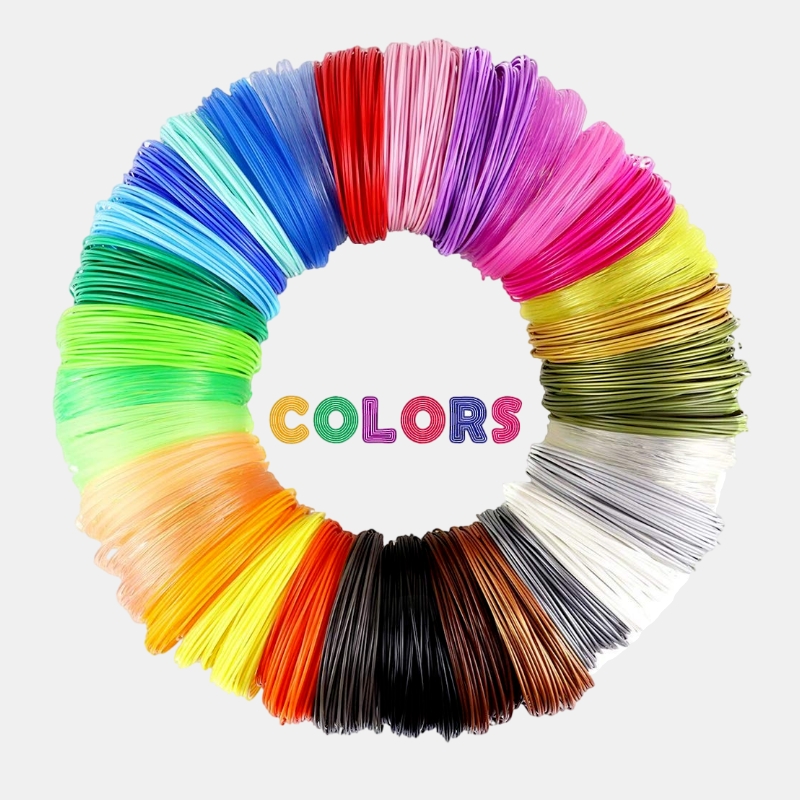1/17
${data.index + 1}/${data.total}
Description
Product Name: 3D Printing Pen 1.75mm PLA Filament
Material: Polylactic Acid (PLA)
Printing Accuracy: ±0.02mm
Colors: Multiple Colors
Item Diameter: 1.75 Millimeters
Melting Point Temperature: 160-200℃
Comparison of Filament Materials
High-Temperature Printing Filament PLA/ABS Low-Temperature Printing Filament PCL
High-temperature filament PLA has a melting point temperature of 160-200℃. It is a biodegradable, environmentally friendly material extracted from corn grains. It is rigid, with high strength and stiffness. The surface is glossy and it has a crisp texture, preventing warping during printing.
High-temperature filament ABS has a melting point temperature of 200-240℃. It has high strength, good toughness, low density, and is resistant to high temperatures. It melts quickly but has a slight smell. It is suitable for industrial printing.
Low-temperature filament PCL has a melting point temperature of 60-100℃. It is a eco-friendly material called polycaprolactone. The printed artwork or defective products can be softened by hot water, making it a malleable material for manual processing. The recommended printing temperature is 80-100℃, ensuring safety.
Material: Polylactic Acid (PLA)
Printing Accuracy: ±0.02mm
Colors: Multiple Colors
Item Diameter: 1.75 Millimeters
Melting Point Temperature: 160-200℃
Comparison of Filament Materials
High-Temperature Printing Filament PLA/ABS Low-Temperature Printing Filament PCL
High-temperature filament PLA has a melting point temperature of 160-200℃. It is a biodegradable, environmentally friendly material extracted from corn grains. It is rigid, with high strength and stiffness. The surface is glossy and it has a crisp texture, preventing warping during printing.
High-temperature filament ABS has a melting point temperature of 200-240℃. It has high strength, good toughness, low density, and is resistant to high temperatures. It melts quickly but has a slight smell. It is suitable for industrial printing.
Low-temperature filament PCL has a melting point temperature of 60-100℃. It is a eco-friendly material called polycaprolactone. The printed artwork or defective products can be softened by hot water, making it a malleable material for manual processing. The recommended printing temperature is 80-100℃, ensuring safety.
